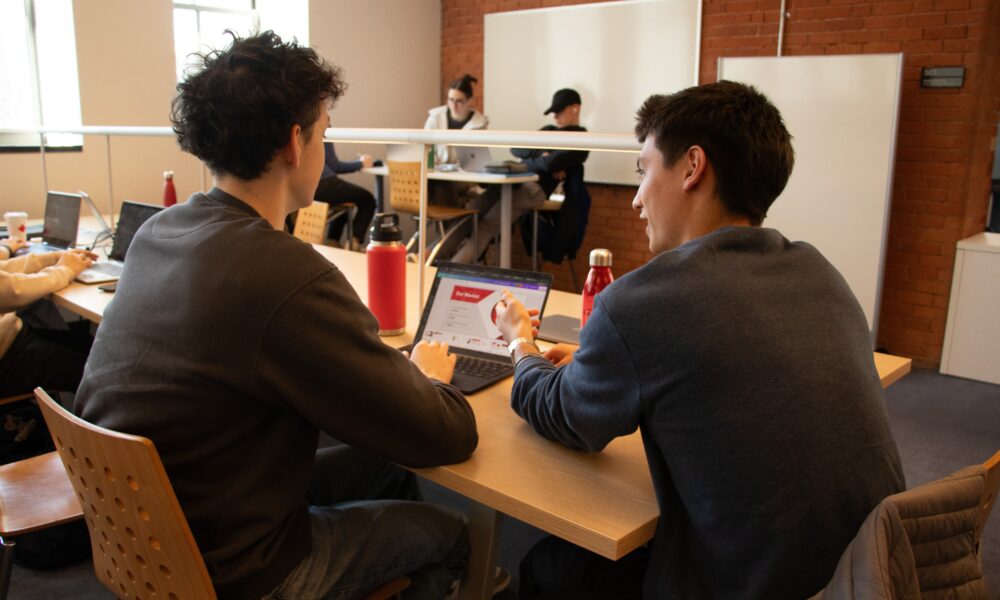Almost all students can relate to the experience of finding out that a group project is worth 30 per cent of their grade. For many, this realization instills a sense of dread: Will my group partners pull their weight? How will we find a time that works for us all to meet? Will the TA understand the unique challenges that come with compromising to find a topic that works for us all?
Group projects are a good exercise in getting a sense of what we will have to face in the workplace in our future careers. Teamwork is central in a lot of professional environments, so it’s crucial to develop communication skills and build self-confidence to avoid struggling later on. Yet, most of us despise group projects—they can be a big source of stress for busy students who don’t have a lot of time to schedule group meetings or worry that collaborative work won’t be shared fairly. Being partnered up with random students from your class is always a risk: Some people don’t get along or share the same work methods, leading to disorganization and miscommunication.
“Your experience with group projects relies heavily on chance and who you are going to be grouped with, which affects the efficacy of the group,” Aliénor Jardin, U2 Arts, pointed out in an interview with The Tribune.
When you find yourself in a group project, don’t hesitate to speak your mind. It is okay not to agree with your partners but you are usually all working toward the same grade. Honesty is not a flaw, so don’t be scared to speak up.
Chloé Jaouen, U2 Arts, gave tips on how to gain confidence while doing collaborative work in an interview with The Tribune.
“The thing I tell myself is that I probably won’t see most of the people I work in groups with again after the end of the semester, so why bother being shy and risking my grades over something so short-lived,” Jaouen said. “I won’t let my grades depend upon someone who doesn’t care about others or about their own grades.”
Teamwork is about sharing ideas and discovering new work methods. It teaches you to make compromises and collaborate, which are important life skills. For people like Jardin who don’t necessarily like working with others, it’s important to remember that everyone has something interesting to bring to the table.
“When it’s a task that requires different skills, such as using Excel, which I struggle with, then it becomes useful to share the work with people who have different areas of expertise,” Jardin said.
Some students might struggle more than others with communicating in a group setting. McGill is known for having loads of students who do not speak English as their mother tongue. This challenge, along with social anxiety, can make speaking your mind more nerve-racking. Try to remember that your group mates likely feel some level of anxiety as well—some might just be better at hiding it—and are likely compassionate, understanding people at heart.
There is also the possibility of creating online group chats to communicate in writing if you don’t feel comfortable talking to people face-to-face. Communication is key, so if you know that some personal matters may impede your work, reach out to your group mates or professor to find solutions that work for everyone.
Joseph Rouhana Feghaly, U1 Engineering, thinks that it’s easier to work with people you are already familiar with.
“When I can, I prefer getting into groups with people I know rather than people I don’t know,” Feghaly said. “It’s easier to talk to your friends when they are not doing the work than reaching out to strangers to pressure them. You don’t want to cross some boundaries and sound rude.”
Group projects are scary, but with experience, it gets better.
“Most of the time group projects involve getting together once or twice to share the tasks and then working individually, so I wouldn’t stress about it too much,” Jaouen concluded. “With practice, you’ll see how not-that-big-of a-deal it becomes.”
Interviews were translated from French.








